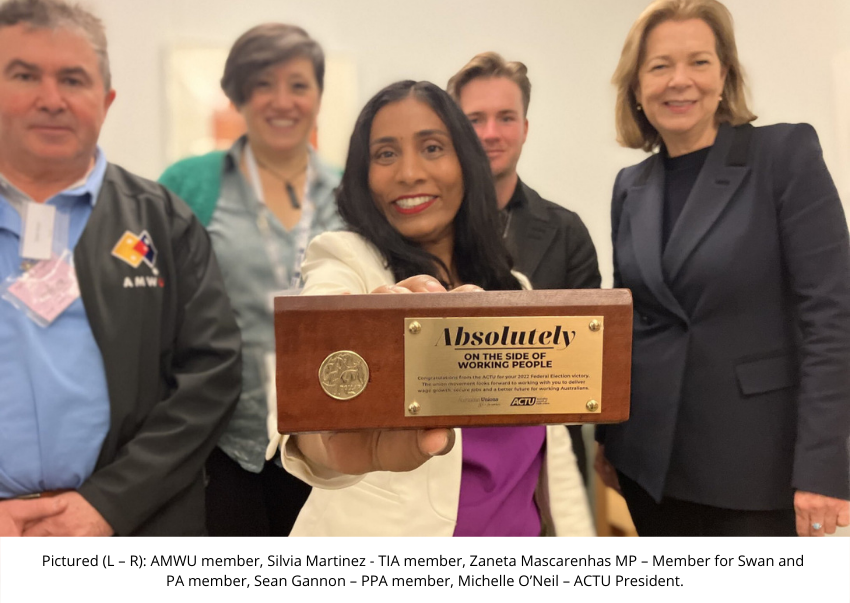PA members in Parliament - Silvia Martinez
Earlier this month, a number of Professionals Australia members travelled to Canberra to meet with the new Federal Government Ministers and other MPs.
PA members from engineering, pharmacy and language services met with over 90 MPs and discussed their concerns about how the current industrial relations and wages system is failing to deliver adequate pay and working conditions.
In this interview, Silvia Martinez – Certified Specialist Legal Interpreter, Certified Interpreter and Translator (Spanish-English), discusses her experience of the event.
 Tell me a bit about you, your profession and your relationship with the union.
Tell me a bit about you, your profession and your relationship with the union.
I returned to Australia in 2009 and started working in the community interpreting and translation space then. “Community” interpreting and translation is what allows our governments, its agencies and companies providing services to the Australian community to communicate with people of low English proficiency. It’s an area where our profession isn’t valued in the same way as it is in the international space, where I also work as a conference interpreter.
Shortly after I returned to the country, I heard that translators and interpreters in Victoria were organising themselves within Professionals Australia, which then formed the Translators and Interpreters Australia group. I absolutely saw the need to attend to industrial issues collectively and not individually, so I joined the union as well. Most of the organising then was happening in Victoria, but we are affected by the same issues right around the country, so membership grew in all states.
More recently, I was elected to the Managers and Professionals Division Committee, which allows our profession to participate in the union at a broader level. One of our Victorian colleagues participated in this committee previously, and I’m happy to be able to continue the connection.
Going into the event, what did you hope to achieve?
Much of our work as translators and interpreters involves providing services to government – with a lot of this work outsourced. So while the government may gain “efficiencies” by changing Language Service Providers when they get a cheaper option, what this effectively means is that workers’ pay and conditions will be reduced.
I wanted to highlight what this approach to language services means for us as professionals workers, with no guaranteed minimum conditions and a complete lack of security in employment . This is not the way a public service that supports social cohesion and inclusion should be delivered.
I also wanted to be part of the conversation about the urgent need for industrial relations reform and how unbalanced the federal IR system is – particularly the need to have industry-wide bargaining, and the fact that employers have all the power in bargaining in the current system.
Can you tell me about your experience at the event?
The event was focused on acknowledging the commitment the ALP made while in opposition to improve employment conditions for workers across Australia and thanking them for the steps they have already taken to do this - including the introduction of domestic and family violence leave. The ACTU prepared gifts for each of the MPs we met with to celebrate the Prime Minister’s commitment to a decent minimum wage increase while in opposition, and it was fun to see the responses to the “Absolutely” plaques.
Around 60 workers from across the union movement attended the event, making it the largest delegation to parliament of its kind. We worked in small delegations and, together, we met with 97 of 103 ALP MPs over the course of two days.
Can you talk about some of the conversations you had with MPs?
A number of the MPs I met with were surprised about the poor pay and insecure work many translators and interpreters are facing. I spoke with one MP from a multi-cultural electorate who works with interpreters regularly and didn’t realise the IR issues facing the profession.
I spoke about the outsourcing issues not being conducive to good language services or to a sustainable industry.
If we’re serious about enabling a cohesive multicultural society, there need to be good translating and interpreting services so that differences in language can be overcome.
There is no culture without language—whether that language is spoken or signed, belongs to our First Nations or our migrant communities--and there are currently significant issues around how communication with languages other than English is valued in Australia.